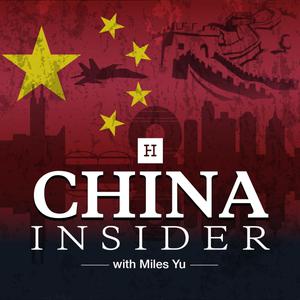
China Insider
Hudson Institute
China Insider is a weekly podcast project from Hudson Institute's China Center, hosted by Miles Yu, who provides weekly news that mainstream American outlets often miss, as well as in-depth commentary and analysis on the China challenge and the free world’s future.
- 16 minutes 53 secondsTikTok, Free Speech, and Americans' Stance on US Foreign Affairs
In this episode of China Insider, China Center Director Miles Yu analyzes the landmark ruling by the DC Appeals Court against TikTok that upholds legal protection of free speech against foreign adversaries’ malign influence. He also discusses a new opinion survey revealing the pulse of the nation on U.S. leadership in world affairs, the dramatic uptick of positive sentiment against China and America’s commitment to the defense and sovereignty of Taiwan.
10 December 2024, 10:00 am - 18 minutes 56 secondsXi's Latest Military Purge, Assessing Effectiveness of Tariffs, and Capital Repatriation
In this week's China Insider, expert Miles Yu discusses the peculiar purge of Admiral Miao Hua and why this should not come as a surprise to anyone. Next he does a deep dive into the contentious issue of tariffs on Chinese imports, and finishes by analyzing China's draconian restrictions of free capital flows by foreign companies.
3 December 2024, 10:00 am - 19 minutes 41 secondsXi Jinping's Red Lines, More Violent Killings in China, and Escalation in Ukraine
In their meeting in Peru, Xi Jinping laid out 4 "red lines" to President Joe Biden, detailing the issues where he expects the US to avoid interference in the affairs of the Chinese Communist Party. Expert Miles Yu unpacks these red lines and what they mean for Donald Trump's incoming administration. Next, Miles covers a brutal killing in mainland China and how it feeds into the larger surge of violent killings across China. Finally, we provide an update on the conflict in Ukraine, and why we might see a lot more North Korean troops on the front lines in the future.
20 November 2024, 5:34 pm - 26 minutes 47 secondsTrump's Re-election, The Future of US-China Relations, and Chinese Youth Take to the Streets
Former President Donald Trump has been reelected, so we open this week with Miles Yu’s take on the how and why of Trump’s reelection and what it says about the state of the American people and American democracy. Next, Miles previews what Trump’s reelection means for United States–China relations, how the Chinese Communist Party might react, and where Trump and Xi Jinping might butt heads first. We close by highlighting a viral cultural phenomenon unfolding inside China, which saw tens of thousands of young people harmlessly riding bicycles overnight to go get dumplings. The CCP has since shut down nighttime bike riding as a response, and Miles details why the CCP’s paranoia of this large gathering of light-hearted youth could be a sign of things to come.
13 November 2024, 10:00 am - 22 minutes 53 secondsElection Day, Chinese Interference, and the China–Russia–North Korea Axis
It’s election day! If you haven’t already, go do your civic duty and vote. With that settled, we open this week with Miles on just what makes American democracy so unique and influential around the globe. Everyone worldwide has a vested interest in the outcomes of our elections, and China is no exception. Miles reviews the Chinese Communist Party’s outlook on our elections and highlights their past (and current) attempts to interfere in our democratic system. We then close with a quick glance again at the North Korean troops in Ukraine, but use this topic as a catalyst to take on the prevailing narratives about China’s thinking inside the evolving axis between China, Russia, and North Korea.
5 November 2024, 10:00 am - 30 minutes 54 secondsThe BRICS Dilemma, China and India’s New Border, and Seventy-Fifth Anniversary of Battle of Guningtou
Hudson expert Miles Yu opens with his assessment of the BRICS summit held last week in Kazan, Russia, and whether it accomplished anything other than a moral victory for Vladimir Putin’s legitimatization campaign. Second, he analyzes the conveniently timed agreement between China and India over their longstanding border dispute in the Himalayas and argues that the solution is more a circumstantial strategy shift than a true settlement. Finally, Taiwanese President Lai Ching-te visited the Island of Quemoy to commemorate the seventy-fifth anniversary of the Battle of Guningtou, which Miles likens to both the Battle of Saratoga and the Battle of Midway in terms of significance in shaping Taiwan’s history.
29 October 2024, 9:00 am - 27 minutes 42 secondsDPRK Fighting for Russia in Ukraine, Reviewing U.S. Tariffs, and China's Nobel Conundrum
South Korean intelligence services have revealed credible evidence that North Korea has deployed upwards of 12,000 troops for training and ultimately combat alongside Russia in the war against Ukraine. Miles Yu analyzes the significance of this escalation what this signals for the anti-western axis of Russia, China and North Korea. Second, with the US presidential election reaching its apex, the economy, and tariffs, are in the spotlight. Miles retraces what lead to the tariffs on Chinese imports started during Trump's first term, and why they have had such strong bipartisan support. Finally, Miles details why China has so few Nobel laureates, and why the four winners they have had don't receive the heroes treatment you might expect.
22 October 2024, 9:00 am - 25 minutes 14 secondsPresident Lai Calls for Taiwanese Unity, Chinese Stocks Fall, CCP Arrests Taiwanese Businessmen
We start with Taiwanese President Lai Ching-te’s “Double Ten” speech last week, which commemorated Taiwan’s National Day on October 10. President Lai laid out his government’s agenda and called for cooperation to bring political unity to Taiwan. Next, we detail the dramatic rise and fall of China’s stock market in the last two weeks and why the Chinese Communist Party’s planned economy is losing trust both domestically and internationally. And last, we cover the detention of four Taiwanese business executives working at Foxconn in mainland China.
15 October 2024, 9:00 am - 29 minutes 37 secondsChina and Taiwan's Rival National Days, CCP Feigns Peace Offering to Taiwan, and China's Goals in Middle East
On October 1st the Chinese Communist Party commemorated 75 years of CCP rule over mainland China. Meanwhile October 10th serves as Taiwan's national day. For two countries, so geographically close, and so historically tied, to share national days so close and historically tied, creates an obvious political rivalry. Miles Yu lays out for us how this national day rivalry manifests itself. Next, we analyze President Lai's recent refusal of a "peace agreement" with China, deciding instead to publicly push a desire for "peace through strength and self-defense." And last, with the 1-year anniversary of the October 7th terror attacks in Israel upon us, Miles reflects on China's role and goals in the Middle East.
8 October 2024, 9:00 am - 43 minutes 8 secondsInsider Interview: Exposing and Confronting the CCP’s Genocidal Subjugation of It’s People (feat. Olivia Enos)
Human rights sat decidedly at the core of the bi-lateral relationship between the Soviet Union and the United States during the cold war. International awareness, dissident support and tangible accountability measures made human rights a powerful tool in the US arsenal to combat communist influence. Yet, today we don't see the same clarity in policy and action applied to the actions of the Chinese Communist Party. Whether it's the Uyghurs, or any other group from the laundry list of oppressed minorities, the CCP has made it a policy to subjugate, kill, silence or "re-educate" anyone who does not center their beliefs around those of the party. Senior Fellow, Olivia Enos, joins the show this week to paint a scary picture of just how widespread CCP repression is, and how the US can step up to the plate to hold the communist regime to account for its human rights violations.
3 October 2024, 4:39 pm - 27 minutes 57 secondsInternational Traffic in the Taiwan Strait, China's Interests in Ukraine, Shigeru Ishiba Elected in Japan
For the first time ever a Japanese destroyer sailed through the Taiwan Strait, and on the same day naval vessels from Australia and New Zealand also sailed together through the disputed waterway. Miles Yu gives us the background behind the strait's importance for setting the tone with regard to international partnership against Chinese aggression. Second, in light of Ukrainian President Zelenskyy's trip to the U.S., we ask Miles what the state of the Ukraine war is, but specifically through the lens of how China see's and fuel's the conflict. Lastly, we profile the newly elected Prime Minister of Japan, Shigeru Ishiba.
1 October 2024, 9:00 am - More Episodes? Get the App
Your feedback is valuable to us. Should you encounter any bugs, glitches, lack of functionality or other problems, please email us on [email protected] or join Moon.FM Telegram Group where you can talk directly to the dev team who are happy to answer any queries.
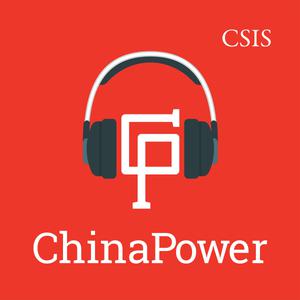 ChinaPower
ChinaPower
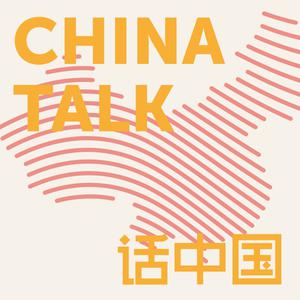 ChinaTalk
ChinaTalk
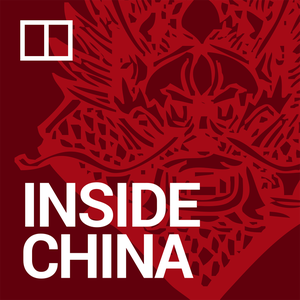 Inside China
Inside China
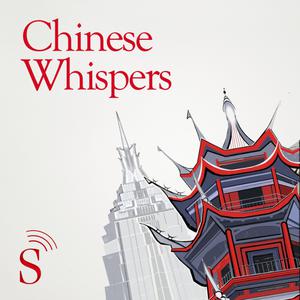 Chinese Whispers
Chinese Whispers
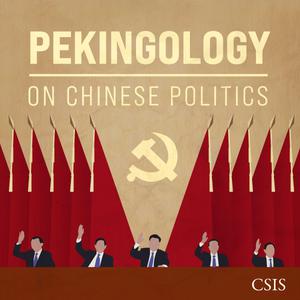 Pekingology
Pekingology
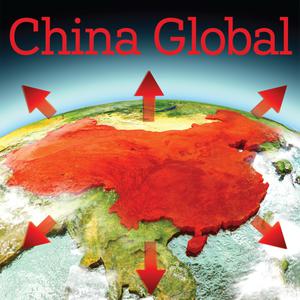 China Global
China Global